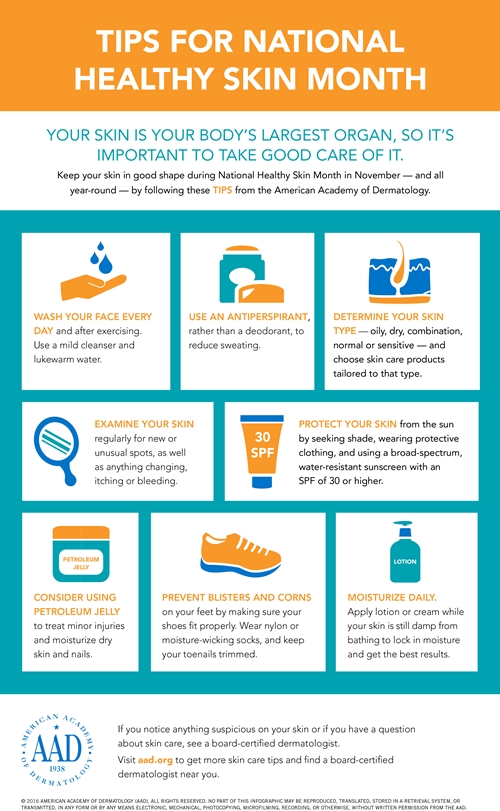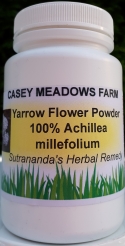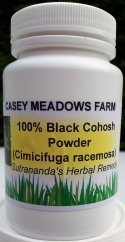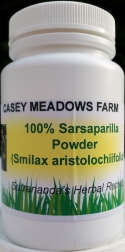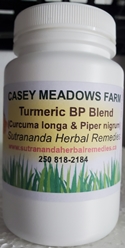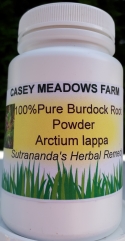|
People say that beauty’s only skin deep;
it’s what’s on the “inside” that counts.
Our insides are certainly important, but
skin is your first layer of defense
against the outside world. Skin can also
give important clues to your overall
health. Learn to take good care of your
skin, so your skin can keep taking good
care of you.
Skin protects your body in many ways.
“The skin provides a barrier to protect
the body from invasion by bacteria and
other possible environmental hazards
that can be dangerous for human health,”
says NIH dermatologist Dr.
Heidi Kong.
Skin plays other roles, too. It contains
nerve endings that let you feel when an
object is too hot or sharp, so you can
quickly pull away. Sweat glands and tiny
blood vessels in your skin help to
control your body temperature. And cells
in your skin turn sunlight into vitamin
D, which is important for healthy bones.
Skin can also alert you to a health
problem. A red, itchy rash might signal
allergies or infections, and a red
“butterfly” rash on your face might be a
sign of lupus. A yellow tint might
indicate liver disease. And dark or
unusual moles might be a warning sign of
skin cancer. Be on the lookout for
unexpected changes to your skin, and
talk with your doctor if you have
concerns.
Your skin can become too dry if you
don’t drink enough fluids or spend too
much time in sunny or dry conditions.
“While washing hands is important for
good hygiene, washing your hands too
much can also lead to dry skin,” Kong
says, especially if you wash with hot
water and harsh soaps. To treat dry
skin, use moisturizing creams or
lotions, and use warm instead of hot
water when you bathe and wash your
hands. You can also try using a
humidifier to make the air in your home
less dry.
The sun can damage your skin as well.
Sunlight contains ultraviolet (UV) light
that causes sunburn and makes your skin
age faster, leading to more wrinkles as
you get older. “There’s a strong link
between UV exposure and skin cancer,”
Kong adds. So protect your skin from the
sun. Wear hats and other protective
clothing, use sunscreen with a sun
protection factor (SPF) of at least 30,
and restrict your time in the sun during
the late morning and early afternoon
hours, when sunlight is strongest.
Many skin researchers like Kong are
studying the skin’s microbiome—the
bacteria and other microscopic organisms
that live on your skin. Some of these
microbes can be helpful. Evidence
suggests that they boost the body’s
infection-fighting immune system and
help keep you healthy. “But there are
some skin diseases with known
associations with certain microbes,”
says Kong. “We’re trying to understand
how those microbes differ between
healthy people and people with skin
diseases.” In the long run, scientists
would like to find ways to support
healthy skin microbes while reducing
harmful ones.
|
